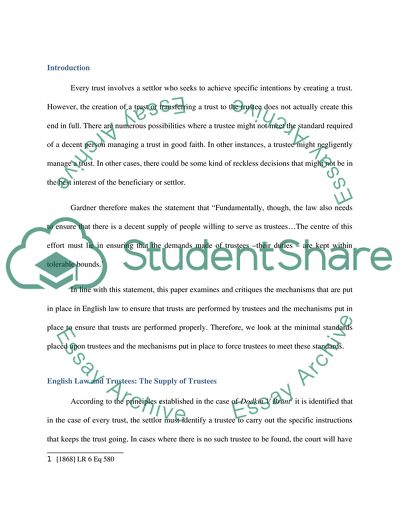Cite this document
(“The Law and Trustees: A Critical Review of Trustee Duties an Standards Essay”, n.d.)
The Law and Trustees: A Critical Review of Trustee Duties an Standards Essay. Retrieved from https://studentshare.org/law/1645654-essay-question-in-law-of-trust
The Law and Trustees: A Critical Review of Trustee Duties an Standards Essay. Retrieved from https://studentshare.org/law/1645654-essay-question-in-law-of-trust
(The Law and Trustees: A Critical Review of Trustee Duties an Standards Essay)
The Law and Trustees: A Critical Review of Trustee Duties an Standards Essay. https://studentshare.org/law/1645654-essay-question-in-law-of-trust.
The Law and Trustees: A Critical Review of Trustee Duties an Standards Essay. https://studentshare.org/law/1645654-essay-question-in-law-of-trust.
“The Law and Trustees: A Critical Review of Trustee Duties an Standards Essay”, n.d. https://studentshare.org/law/1645654-essay-question-in-law-of-trust.


